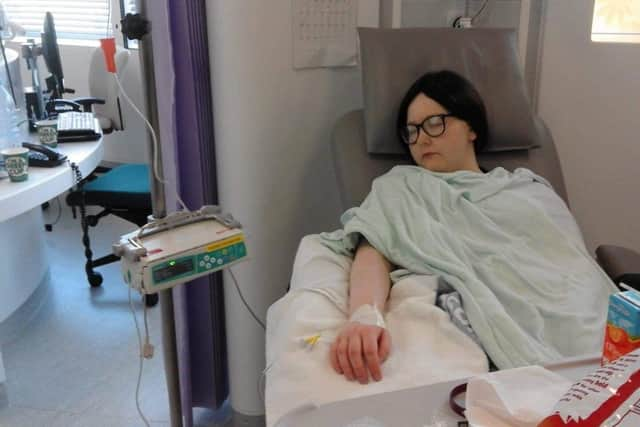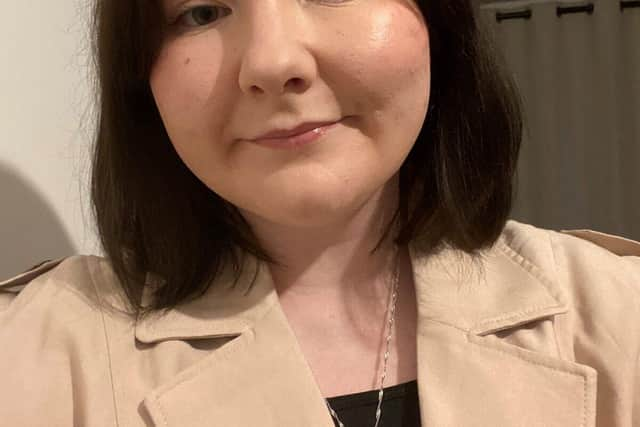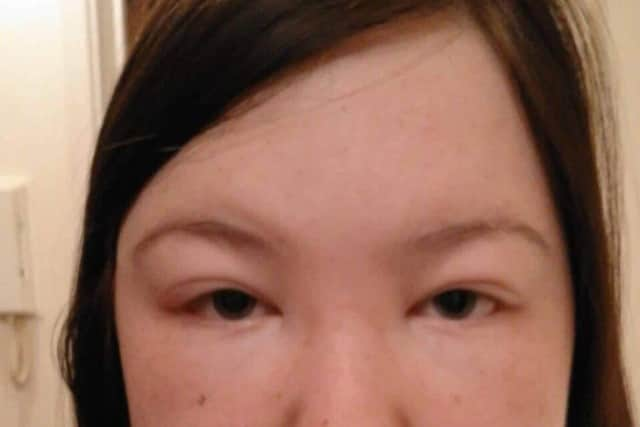Woman diagnosed with cancer at 20 shares story in bid to help others
and live on Freeview channel 276
Studies* suggest that people who have experienced cancer when they’re young are more likely to develop mental health conditions in later life, and that it can impact young people’s studies, careers, personal relationships, and their ability to live independently.
April is Teenage and Young Adult Cancer Awareness Month and, in a bid, to help others, Helen now 28 is working with the charity Teenage Cancer Trust, which supported her through their ordeal, to launch new information and advice for young people on its website about rebuilding their lives after cancer.
Advertisement
Hide AdAdvertisement
Hide AdThe information is based on the firsthand insights of young people aged 13-24 who’ve been through cancer and the expertise of the charity’s specialist nurses and youth workers, who together support thousands of young people every year through treatment and beyond.


In early 2017 Helen was in her second year of university when she developed pains in her chest, which was thought to be minor inflammation. But four months later she woke up and her face had swollen to the extent she found it hard to see, and that March, investigations revealed she had a rare sub-type of non-Hodgkin lymphoma. Gruelling treatment followed, including chemotherapy and radiotherapy.
But Helen says that her biggest difficulties began after treatment ended, as she was left feeling traumatised and isolated.
Now eight years on from her diagnosis, Helen explains:
“Because the diagnosis was a surprise and the treatment was finished within eight months, I didn’t have time to get my head around it.


Advertisement
Hide AdAdvertisement
Hide Ad“I felt that I should have been over the moon to have finished treatment, but instead I thought: ‘Where do I go from here? I won’t have people looking after me now’. I didn’t want to go home as I had a lot of anxiety and felt safer in hospital and when I did go home, I cried every single day. I thought they didn’t want to see me anymore but what they were telling me was that I was better and that I didn’t need to be there.”
Helen struggled to adapt to life after cancer and although she tried psychotherapy and counselling felt that they didn’t fully understand what she had been through.
However, meeting other young people affected by cancer at a Teenage Cancer Trust event made a difference.
Helen said:


“Being around other young people who had been through cancer too was really helpful. I learnt about their coping mechanisms and what was useful to them. It was nice to learn from each other.
Advertisement
Hide AdAdvertisement
Hide Ad“There were conversations that we had that I wouldn’t be able to have with my uni mates or work mates as they wouldn’t understand. We did talk about serious things, but we also talked about the humorous parts of treatment without thinking: ‘Oh, am I allowed to say that?’ We laughed so much and people who haven’t had cancer wouldn’t expect that.”
Helen returned to university and is currently studying for her master's at Northampton University.
Helen explains:
“When I was diagnosed, I dropped out of my university course doing culinary arts. The cancer made me change path, and when I went back, I did my undergraduate in psycho-social community work and graduated last year. I’m now enjoying studying for my master's in child and adolescent mental health and my ultimate goal is to work with other young people who are going through or have been through cancer. I think you can only really truly understand it if you’ve been through the experience yourself and hope I can help other people like me in the future.”
As well as encouraging people who might be struggling to visit Teenage Cancer Trust’s website for information and support, alongside other young people affected by cancer across the UK, Helen is also sharing her personal tips on how to cope when treatment ends.
Advertisement
Hide AdAdvertisement
Hide AdHelen’s number one piece of advice is not to bottle things up. She said:
“After I finished treatment people expected me to be ecstatic, but although I was relieved, I also felt angry and lonely. I bottled up how I was feeling as I felt embarrassed and guilty about my thoughts, and I didn’t want to upset my mum who was obviously really happy her only child had pulled through. But you can only hide your feelings so long – and when I finally opened up about how I was feeling I felt so much better – actually physically lighter.”
Helen has also found that it’s not helpful to compare yourself to others.
“When you’re looking at social media and hearing the stories of other young people with cancer it’s easy to compare yourself, and you might feel like you are not doing as well, or that because they’ve had a harder time your own journey and how you feel isn’t as important or valid. Remember that everyone’s journey is different and however you feel is OK.”
Advertisement
Hide AdAdvertisement
Hide AdKate Collins, Chief Executive, Teenage Cancer Trust, said:
“Reaching the end of treatment is a major milestone for any young person with cancer. But moving forward from cancer can be equally challenging – the physical, psychological and emotional impacts can be felt long afterwards and may even hit hardest after treatment is over.
“That is why we’re launching new information and advice to support teenagers and young adults with the challenges of rebuilding their lives after cancer. And why we’re also asking young people recovering from cancer to share their experiences of life after treatment, to help send out the message to any young people struggling in the aftermath of cancer that they are not alone.”
For information and advice about life after cancer visit: www.teenagecancertrust.org/lifeaftertreatment